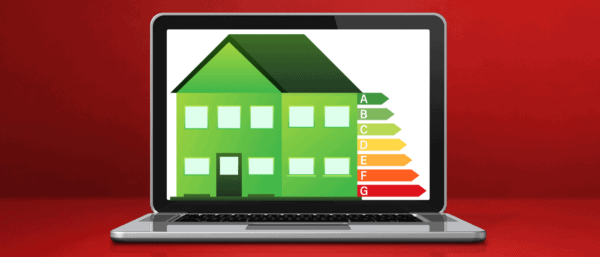What is a Domestic Energy Assessor and how do I become a DEA.

In the pursuit of a more sustainable and energy-efficient future, the role of a Domestic Energy Assessor (DEA) has become increasingly vital. As the world grapples with the challenges of climate change, individuals and governments alike are recognising the need for more energy-efficient homes. In this article, we explore the importance of Domestic Energy Assessments and answer the question, how do I become a DEA?
What does a Domestic Energy Assessor do?
A Domestic Energy Assessor is a trained professional responsible for producing an Energy Performance Certificate by gathering and interpreting all the necessary information about residential property. The primary goal of their work is to provide homeowners, potential buyers and housing providers with valuable information about the energy performance of a home, offering insights into how it can be improved.
What is an Energy Performance Certificate (EPC)?
An EPC is a document that outlines the energy efficiency of a building on a scale from A to G, with ‘A’ being the most energy-efficient and ‘G’ being the least. This rating is based on various factors such as insulation levels, the type of heating systems, lighting, and renewable energy sources. The DEA gathers information about these elements during an on-site assessment, considering aspects like the age and construction of the property.
What happens during a Domestic Energy Assessment?
During the assessment, the Domestic Energy Assessor will inspect and record details about the insulation in walls, roofs, and floors, as well as the type of windows and doors in the property. They will also identify the type of lighting, heating systems in place, including boilers and radiators, and any renewable energy sources such as solar panels or wind turbines.
Once the assessment is complete, the DEA compiles the information gathered and uses a government-approved software to calculate the property’s energy performance rating. The resulting Energy Performance Certificate provides a clear understanding of the property’s current energy efficiency rating, running costs and recommendations for improvement.
In conclusion, through their expert knowledge of the RdSAP methodology, a Domestic Energy Assessor empowers the property owner to make environmentally conscious choices by offering valuable insights into the energy efficiency of residential properties. In a world where the pursuit of sustainability is paramount, the role of a DEA is not only relevant but indispensable in reducing running costs for the occupants and fostering a more energy-efficient and eco-friendly way of life.
How do I become a DEA?
Domestic Energy Assessor training is available for anyone looking to become qualified. Sava’s DEA training can be undertaken entirely online through our online learning platform. Enrol any time and simply work your way through the training content at your own pace. You’ll learn everything you need to interpret and produce EPCs will walk away with an ABBE Level 3 Certificate in Domestic Energy Assessment. Access to the training materials is given for 6 months, giving you plenty of time to qualify around other commitments.
To find out more about our training and how to become a DEA through Sava, head to our DEA training page. Alternatively, you can download our DEA training info sheet for more information.